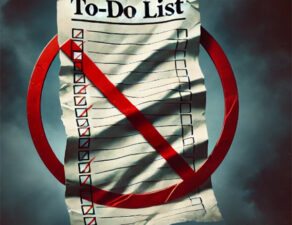
Students in my strategy classes at Boston University often ask: What applicant characteristics matter most when applying for positions with strategy consulting firms? Of course, there are some obvious ones — sharp analytical skills and strong communication capabilities among them. But one that is often overlooked — and yet quite valuable — is possession of a healthy curiosity.
As I wrote in an earlier newsletter, creative solutions to seemingly intractable problems often come from insights garnered outside of an organization’s specific field. A robust curiosity (despite its potentially negative impact on cats!) can lead you to seek additional information and generate creative insights.
Curiosity’s proven value is also why business leaders often design their offices with central gathering points (whether mailroom or kitchen areas), where individuals from different functional areas are likely to encounter one another. As Vinit Nijhawan used to say when he ran the office of tech transfer at BU, he wanted to “minimize friction and maximize collisions.”
Read, Read, and Read Some More
Of course, one of the best ways of gaining insights from a broad range of fields is to work in a broad range of fields. But what if you are early on in your career or if your career journey to date has kept you tightly focused in just a few areas?
The answer is simple: Read… broadly and a lot. Hopefully, that’s obvious. Less obvious, though, is what to read.
Maybe that’s why posts in social media by thought leaders like Richard Branson on LinkedIn or Bill Gates in his blog so often contain recommended reading. Even the man who helps me with this newsletter, Michael Katz, has a list of the 12 books every independent professional should read. (Note to self: time to create my own such list!)
You can get a lot of useful ideas from business books, whether relatively new ones like Seeing Around Corners by Rita McGrath or more “classic” works that have been popular for a while, like Good to Great by Jim Collins. But there are many non-book inspiration sources, too (few of the resources in the lists offered by Gates or Branson are business books).
What I Read
I read selections from a wide range of general press — The Boston Globe, New York Times, Washington Post, The Guardian, The Wall Street Journal. And I don’t just read the business sections — I also skim the other sections (including Editorials/Opinion, where I see a range of perspectives) and dig in wherever the headline intrigues me. Business magazines, too, like BusinessWeek, Wired, Fast Company, and Inc.
I also look at serious business emails and posts from leading strategy groups like BCG’s Henderson Institute, McKinsey’s Quarterly, Knowledge @Wharton, Harvard Business Review, and others. Plus broader, long-form sources of cultural interest like the New Yorker, the Economist, Stanford Social Innovation Review, The Atlantic Monthly, MIT’s Technology Review, and Rolling Stone.
Finally, I am on mailing lists for trade journals from all sorts of industries — those I have worked in or in which I simply have an interest. These range from the Chronicle of Higher Education, to Senior Housing News, to Progressive Grocer (don’t laugh, it’s a fascinating publication!).
Of course, I can’t read all of these sources cover to cover… it’s too much, and I actually have to make some time for work and family activities. But I do have an approach in mind as I review these:
I begin by scanning the headlines and summaries and grab any that seem interesting to me — for any reason. Then I skim quickly to get the gist of the article.
- If I find something that might be immediately relevant — whether to illustrate a concept for one of my strategy classes, or to trigger a new thought for a client engagement — I read it immediately.
- If it is more relevant for a future issue, I save it in a folder on the topic.
- If it has no apparent connection to my work but still seems interesting, I file it under “general interest” for possible future review.
Whatever approach works for you, I find it very helpful to plan how you will parse and organize all this information.
Serendipity is Your Friend
When I began my college career at Colby College, an ardently liberal arts institution, the one thing I remember from the president’s welcome speech was his thought about serendipity. His suggestion was that when we were in the stacks (historical reference: a section of libraries where books are stored), after finding the book we were looking for, we should also grab another book near it on the shelf and read that one too. The idea was that by embracing this kind of randomness, we would expand our horizons along the way.
Similarly, if you take the time to investigate things you’ve possibly wondered about (e.g., What, exactly, is American cheese, anyway?, as mentioned in someone’s recent newsletter), you’ll often stumble across ideas and insights that you would have otherwise missed.
Reflections
Keeping your eyes open for interesting and varied news and insights from a range of places helps keep your mind sharp and can often trigger creative ideas that can be useful in life and business.










